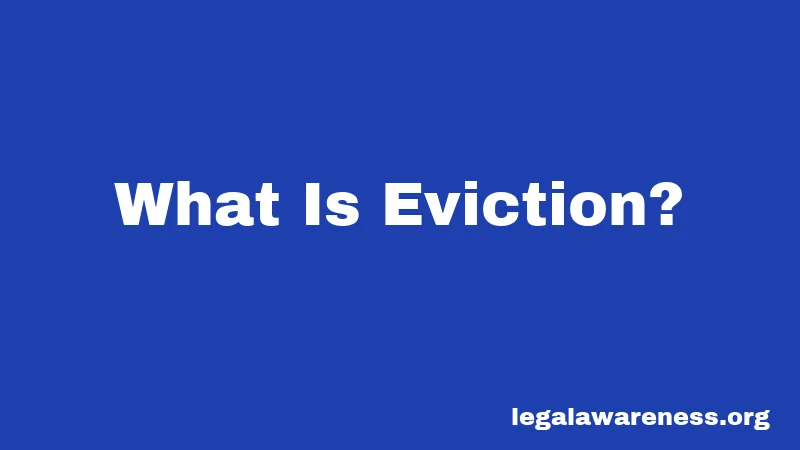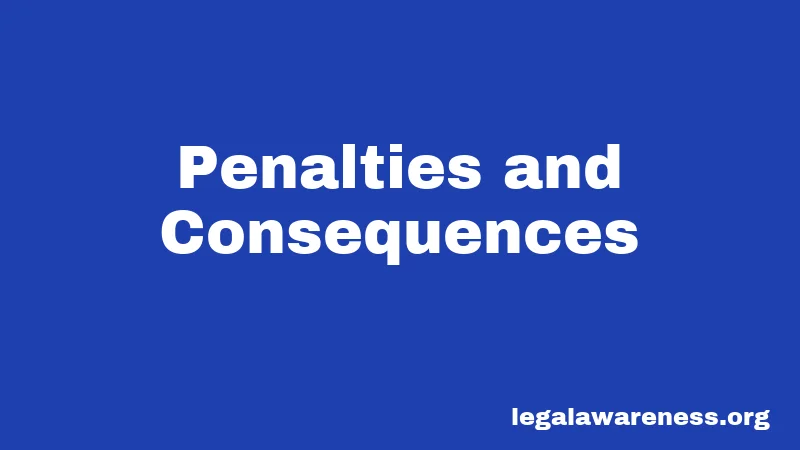Michigan Eviction Laws in 2026: Your Complete Renter & Landlord Guide
Most people have no idea how strict Michigan eviction laws actually are. But seriously—if you’re renting in Michigan, or you own rental property here, you need to know this stuff. The rules are specific. The timelines are tight. And one mistake can cost you money or drag out the process for months.
Here’s the good news: Michigan’s eviction process is actually pretty straightforward once you understand it. Whether you’re facing eviction or thinking about evicting someone, we’ll break down exactly what you need to know. Let’s go.
What Is Eviction?

Think of it like this: eviction is the legal process of removing someone from a rental property. It’s not something a landlord can just do on their own. It requires going to court and following specific steps. If a judge agrees the landlord has good cause, only the sheriff can physically remove the tenant.
Here’s what matters: Michigan law protects both landlords AND tenants. Landlords get the right to remove problem tenants. Tenants get due process and protection from unlawful evictions. Both sides have rights.
Basic Michigan Eviction Laws
When Can a Landlord Evict?
In Michigan, landlords can’t evict just because they feel like it. They need “just cause.” That means a real, legal reason. Here’s what qualifies:
Non-payment of rent. This is the most common reason. If rent is late, a landlord can serve notice. Most landlords don’t give grace periods—rent due on the date in your lease. Michigan law doesn’t require grace periods unless your lease says otherwise.
Breaking the lease agreement. Unauthorized pets, excessive noise, property damage, overcrowding—these are all violations. If you paint the kitchen cabinets neon green without permission, that’s a violation. If you turn the garage into an auto repair shop, that’s a problem.
Illegal activities on the property. This is serious. We’re talking drug manufacturing, dealing, or possession. Criminal activity. Selling stolen goods. Running an illegal gambling operation. Landlords have the right to act fast here.
Threats or physical violence. If you or someone in your household threatens or physically injures someone on the property, that’s grounds for immediate eviction. No second chances.
Health or safety violations. Creating dangerous living conditions counts. We’re talking about serious stuff like unsanitary conditions, hoarding, or anything that makes the unit unsafe for others.
Holding over after lease ends. If your lease expires and you stay without renewing, the landlord can evict you. Pretty straightforward.
The Notice Requirements—This Part Matters
Okay, pause. Read this carefully. The type of notice determines everything. Miss this, and you miss the whole timeline.
Michigan has four main types of eviction notices:
7-Day Notice for Non-Payment of Rent. Tenant gets 7 days to pay or move. That’s it. Rent is due, rent is late, 7 days starts. If tenant doesn’t pay by day 7, landlord can file for eviction.
7-Day Notice for Health, Safety, or Illegal Activity. This applies to serious lease violations. Drug activity that’s not related to manufacturing or dealing. Violence. Creating a health hazard. Tenant gets 7 days to cure (fix it) or get out.
24-Hour Notice for Drug-Related Crimes. This is the shortest one. If someone in the household manufactures, delivers, or possesses controlled substances, and the landlord files a police report, the tenant gets only 24 hours. One day. That’s how serious Michigan treats this.
30-Day Notice for General Violations or End of Tenancy. Other lease violations that aren’t covered above? 30 days. Month-to-month lease ending? 30 days. This one’s the longest.
Not sure what notice applies to you? The severity matters. Serious violations = shorter notice. General violations = longer notice.
Penalties and Consequences

So what actually happens if you break the lease or fail to pay rent? Let’s be real about the consequences.
Court costs and filing fees. Filing an eviction costs around $45 in filing fees. Additional fees can range from $25 to $150 depending on the court and claim amount. Both landlord and tenant pay their own lawyer fees. So if you lose and can’t afford a lawyer, that’s a problem.
The judgment. If you lose in court, the judge will order you to either pay the rent owed OR move out. If it’s a non-payment case, the judgment usually includes the unpaid rent, late fees (if allowed in your lease), court costs, and filing fees. That adds up fast.
The 10-day eviction period. You’ve got 10 days after losing to vacate. That’s your window. After 10 days, the sheriff can physically remove you. And they can dispose of belongings left behind after 24-48 hours.
Eviction on your record. This is the part people don’t think about. An eviction appears on your record. Future landlords see it. Getting approved for your next rental becomes harder. Way harder.
Think of it like this: eviction is more serious than a traffic ticket, but it’s not a criminal conviction. Still, it hurts your ability to rent in the future.
Credit impact. If there’s an unpaid judgment, it can affect your credit score. That impacts everything—loans, interest rates, even job applications.
The Eviction Process: Step by Step
Step 1: The Written Notice
Everything starts here. The landlord must serve a written notice that includes:
The property address. The specific reason for eviction. The amount owed (if rent-related). The timeframe to fix it or move. The landlord or agent’s signature. The date the notice was served.
The notice must be delivered properly. Hand delivery. Mail. Or posted at the property with a copy mailed. This matters because improper service is a common reason cases get thrown out. Seriously.
Notice period starts the day AFTER the tenant receives it. So if you get a notice on May 1st, your 7 days (or whatever the period is) starts May 2nd.
Step 2: What If the Tenant Doesn’t Comply?
Let’s say 7 days pass and the tenant hasn’t paid rent or fixed the problem. Now what?
The landlord files a Complaint and Summons with the district court in the area where the property is. This is the formal start of the eviction lawsuit. The tenant gets served with court papers. They get a court date (usually within 10 days).
The tenant can respond in writing OR show up to court to defend themselves. They can argue, provide evidence, or explain why they should stay. They can even request legal help.
Step 3: The Court Hearing
Both sides show up. The landlord explains why they want the tenant out. The tenant gets to defend themselves. The judge listens to evidence from both sides.
Here’s what matters: if the tenant doesn’t show up, they lose by default. The landlord wins automatically. If the tenant does show up but can’t prove their defense is valid, the judge still rules for the landlord.
The judge makes a decision. Either the tenant wins and stays, or the landlord wins and the tenant gets ordered out.
Step 4: The Judgment and Writ
If the landlord wins, the judgment states how much is owed (if applicable) and that the tenant must move out. The tenant gets 10 days to leave. If they don’t, the landlord files for a Writ of Eviction with the court.
Once that writ is issued, the sheriff comes. The sheriff physically removes the tenant and belongings. The tenant doesn’t get to negotiate at this point.
Timeline: How Long Does This Really Take?
Here’s the realistic timeline: 3 weeks to 2 months. Some cases move faster. Some slower. It depends on court backlogs, whether the tenant contests, and if they request an appeal.
At minimum:
- 7-30 days for the notice period (depends on violation type)
- A few days to file paperwork
- 10 days before the court hearing
- Time for court processing
- 10 days for the tenant to vacate after judgment
- Sheriff enforcement if needed
Bottom line: eviction takes time. It’s not instant.
Special Situations in Michigan

Can Landlords Do a Self-Help Eviction?
Here’s something important: no. The answer is no. Absolutely not.
Landlords cannot change locks, shut off utilities, remove belongings, or force a tenant out without a court order. It’s illegal. Landlords who do this can face legal penalties.
The only exception? Squatters. Someone who never signed a lease and occupied the property without permission. Even then, it’s better to get a lawyer.
What About Retaliation?
Michigan law protects tenants from retaliation. If a tenant:
Reports health or safety code violations. Joins a tenant organization. Contacts local housing authorities. Participates in legal action.
Then the landlord cannot evict them (or increase rent, decrease services, or harass them) as punishment. If a landlord retaliates within 6 months of these actions, it’s considered illegal retaliation.
Honestly, this one’s probably the most important rule most people miss.
Rental Assistance Can Stop Eviction
Here’s something that might help: Michigan has rental assistance programs. If you’re facing eviction for non-payment, you can apply for help BEFORE your first court date OR within 5 days of your first hearing.
If you file an application and proof with the court, the case gets paused for 14 days while they process your application. If assistance is approved, the eviction might be cancelled.
This is big. Really big. Don’t skip this.
New 2025 Anti-Discrimination Law
As of April 2, 2025, Michigan has a new rule. Landlords with five or more rental units cannot discriminate against tenants based on their source of income. That means they can’t deny applications just because you’re using a Housing Choice Voucher (Section 8) or other public assistance.
This doesn’t apply to smaller landlords yet, but it’s worth knowing.
Tenant Defenses and Rights
Common Defenses That Actually Work
If you’re facing eviction, you might have a defense. Here are the ones that actually hold up in court:
Landlord failed to maintain the property. If your landlord didn’t keep the unit in reasonable repair—no heat in winter, broken roof, mold, serious plumbing issues—you might have a defense. Michigan law requires landlords to keep properties habitable.
Retaliation. We covered this above. If you reported violations and got evicted within 6 months, you have a defense.
Improper service of notice. If the notice wasn’t served correctly, the eviction might be invalid. This is more technical, but it happens.
You actually paid the rent. If you have proof of payment, bring it to court. Seriously. Bring bank statements, receipts, everything.
The lease violation wasn’t real. If the landlord claims you violated something you didn’t actually do, come prepared with evidence.
Can Tenants Get Legal Help?
Yes. If you have low income, you might qualify for free legal services. Contact your county bar association or search for legal aid in your area. Many areas have free or low-cost legal help specifically for eviction cases.
Limited scope representation is also an option. You hire a lawyer for just one part of your case instead of the whole thing. This costs less but still gives you help where you need it most.
How to Serve Notice: The Right Way
This might seem simple, but it’s not. Service has specific requirements.
Hand delivery. Personally handing the notice to the tenant is the most straightforward method.
Certified mail. Mailing it certified (with proof of delivery) works too.
Posting at the property. Leaving it at the rental unit with a copy mailed also counts.
Delivery to a responsible household member. Leaving it with an adult who lives there and will pass it along counts.
Email. Only if the tenant previously agreed to email service in writing.
The key: proof of service. Keep records showing how and when you served the notice. Without it, you can’t prove the tenant received it. And without that, your case might get thrown out.
What Happens to Belongings After Eviction?
Here’s Michigan’s rule: landlords don’t have to store tenant belongings.
If a tenant leaves stuff behind after being evicted, the landlord puts the items outside the property for 24-48 hours. If the tenant doesn’t come get them, the landlord can donate or dispose of the belongings.
Not ideal, but that’s the law.
Recent Changes to Michigan Eviction Law
The biggest change in 2025? That anti-discrimination law we mentioned. Landlords with 5+ units can’t discriminate based on income source starting April 2, 2025.
Experts think more changes might be coming. But as of now, that’s the major update. The rest of the process stays the same.
How to Protect Yourself
If You’re a Tenant:
Pay rent on time. Seriously. This is #1. Late rent is the most common reason for eviction.
Read your lease carefully. Know what you’re agreeing to. Ask for clarification if something’s unclear.
Document everything. Keep copies of rent payments, maintenance requests, all communication with your landlord.
Know your rights. Landlords can’t just evict you without cause. They have to follow the legal process.
Report violations. If your landlord doesn’t maintain the property, report it to local housing authorities. You’re protected from retaliation.
Act fast if you get notice. If you get eviction notice, apply for rental assistance immediately. Contact a lawyer. Don’t wait.
If You’re a Landlord:
Use a written lease. Don’t rely on handshake deals. Everything in writing.
Keep detailed records. Document rent payments, property inspections, tenant communications, everything.
Serve notice correctly. Follow the service requirements exactly. Improper service kills your case.
Follow the timeline. Don’t skip steps. Don’t rush. Follow the process as Michigan law requires.
Consider rental assistance. If a tenant’s behind on rent, they might qualify for help. Better to get paid than pursue eviction.
Screen tenants carefully. Good tenant selection prevents problems later. Background checks, reference checks, income verification.
Stay organized. Keep the lease, notices, court documents, all proof of service. You’ll need it in court.
Frequently Asked Questions
Can a landlord evict without a lease? Yes. Even without a written lease, Michigan law protects landlords. But you’ll need to provide proper notice (usually 30 days for month-to-month arrangements).
What if the tenant doesn’t show up to court? The landlord wins by default. The judge will issue judgment in the landlord’s favor, and eviction can proceed.
Can a tenant stop an eviction by paying rent after notice is served? Not always. Once eviction is filed in court, payment might not stop the case. But before court, if the tenant pays within the notice period (like paying within 7 days of a non-payment notice), the eviction might not proceed.
How much does a full eviction cost? Around $150 to $5,000 total, depending on whether it’s contested and whether a lawyer is involved. Filing fees are ~$45, but other costs add up fast.
Can landlords charge tenants for eviction costs? In Michigan, each party pays their own costs unless the court orders otherwise. However, the judgment might include court costs. Check with a lawyer for specifics.
What are tenant rights during an eviction? Tenants have the right to proper notice. The right to appear in court. The right to legal representation. Protection from self-help evictions. Protection from retaliation.
Final Thoughts
Now you know Michigan’s eviction laws. If you’re a tenant, understand what you owe and what your rights are. Pay rent on time, follow the lease, and report violations. If you’re a landlord, follow the process exactly. It protects you and keeps everything legal.
Eviction is serious business. It’s not something to take lightly on either side. But Michigan’s laws make sense once you understand them. Clear notice. Fair process. Court involvement. Both sides get their say.
Stay informed. Stay organized. When in doubt, talk to a lawyer. It might cost money upfront, but it saves way more in the long run.
References
Michigan Compiled Laws § 600.5714 – Summary Proceedings to Recover Possession https://www.legislature.mi.gov/Laws/MCL?objectName=mcl-600-5714
Michigan Legal Help – Eviction: What Is It and How Does It Start https://michiganlegalhelp.org/resources/housing/eviction-what-it-and-how-does-it-start
Michigan Legal Help – Eviction for Nonpayment of Rent https://michiganlegalhelp.org/resources/housing/eviction-nonpayment-of-rent
DoorLoop – Michigan Eviction Laws: The Process & Timeline In 2025 https://www.doorloop.com/laws/michigan-eviction-process
Innago – Michigan Eviction Process and Laws [2025] https://innago.com/michigan-eviction-process/
iPropertyManagement – Michigan Eviction Process in 2025 https://ipropertymanagement.com/laws/michigan-eviction-process
LeaseRunner – The 2025 Eviction Process in Michigan https://www.leaserunner.com/laws/eviction-process-in-michigan
Hemlane – Michigan Eviction Laws: 2025 Step by Step Process https://www.hemlane.com/resources/michigan-eviction-laws/
